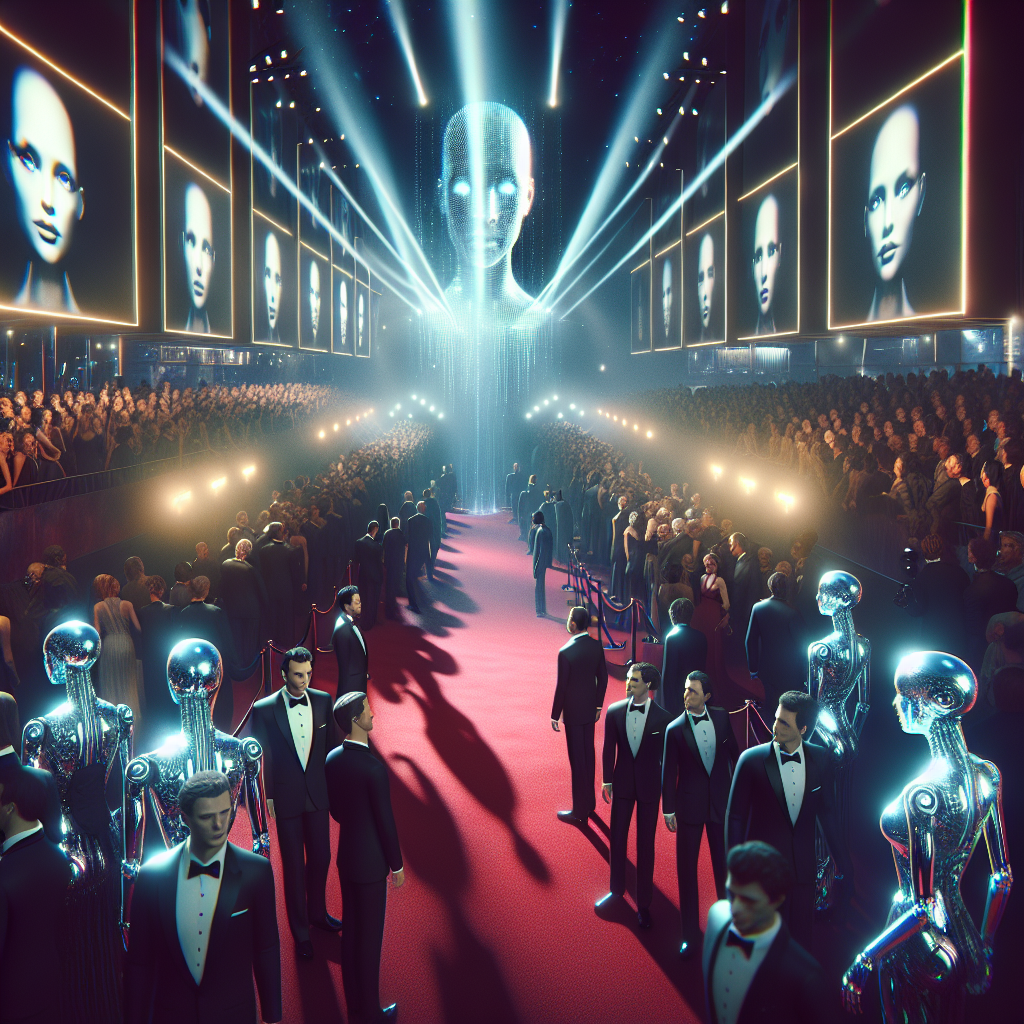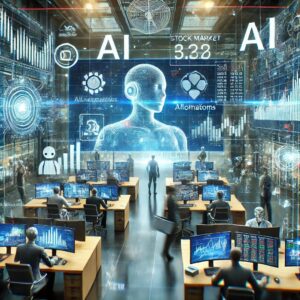The Brutalist and Emilia Perez’s Voice-Cloning Controversies Make AI the New Awards Season Battleground
As the annual awards season approaches, the film industry is buzzing with excitement, but this year, there’s an undercurrent of controversy that has ignited a heated debate: the use of artificial intelligence in film. Two significant events have emerged at the forefront of this discussion—the release of the film “Brutalist” and the controversies surrounding Emilia Perez’s voice-cloning technology. Both instances have raised questions about creativity, authenticity, and the future of artistry in cinema.
The Rise of AI in Film
In recent years, artificial intelligence has made significant inroads into the film industry, impacting everything from scriptwriting to visual effects. The advent of sophisticated algorithms has enabled filmmakers to enhance storytelling and streamline production processes. However, with this technological advancement comes a host of ethical dilemmas.
One of the main concerns is the potential loss of the human touch in storytelling. Films have always been a reflection of human experiences, emotions, and perspectives. As AI begins to take on roles traditionally held by humans, such as writing scripts or generating performances, many fear that the art of filmmaking may lose its authenticity. The debate intensifies when films like “Brutalist” incorporate AI in their storytelling processes, raising questions about the originality of the narrative.
Brutalist: A Case Study in AI Usage
“Brutalist” is a film that harnesses AI-generated content to craft its narrative. It has garnered attention not just for its storyline but for its innovative use of technology. The film’s creators employed machine learning to analyze existing narratives, generate dialogue, and even create visual elements. While this approach showcases the capabilities of AI, it has sparked discussions about the implications of using such technology in artistic endeavors.
Critics argue that “Brutalist” blurs the lines between human creativity and machine-generated content. If AI can produce narratives that resonate with audiences, does it undermine the work of human writers? This question has led to a broader evaluation of what constitutes creativity in the modern age.
Many filmmakers and artists are now questioning the role of AI in their work. It is imperative to consider whether AI can genuinely enhance storytelling or if it merely serves as a tool that could potentially replace human creativity. As the debate unfolds, “Brutalist” stands as a pivotal example of how AI is shaping the cinematic landscape.
Emilia Perez and Voice-Cloning Technology
Parallel to the discussion surrounding “Brutalist” is the controversy surrounding Emilia Perez, a film that has become synonymous with voice-cloning technology. The film’s innovative use of AI to replicate voices has sparked significant backlash within the industry. While the use of voice-cloning technology can provide unique opportunities for filmmakers—such as resurrecting performances from deceased actors or creating new character voices—it raises ethical concerns about consent and ownership.
Many industry veterans argue that using AI to clone voices without the explicit consent of the individual or their estate is an infringement on artistic integrity. The implications of this technology go beyond mere artistry; they touch on legal and ethical boundaries that the industry has yet to fully navigate. The potential for misuse of such technology is a major concern, as it could lead to misrepresentation of an actor’s work or even manipulation of their legacy.
Emilia Perez’s storyline touches on the emotional and psychological ramifications of voice cloning. It explores the nuances of identity and authenticity, raising profound questions about the nature of performance art in the age of AI. The film serves as a microcosm of the broader debate surrounding technology and artistry, prompting audiences to reflect on what it means to be an artist in a world increasingly influenced by machines.
The Audience Reaction
As the controversies surrounding both “Brutalist” and Emilia Perez unfold, audience reactions have been mixed. Some viewers are excited about the possibilities that AI brings to the film industry, embracing the innovations that can enhance storytelling. Others, however, express concern that the incorporation of AI may lead to a homogenization of content, where unique voices and perspectives are overshadowed by algorithm-driven narratives.
The juxtaposition of human creativity against the backdrop of machine learning creates a fascinating dynamic that audiences are grappling with. Many are left wondering if AI can ever truly replicate the depth of human experience, or if it will always remain a shadow of true artistry.
The Future of AI in Cinema
As we move further into the awards season, it is evident that AI has become a battleground for discussions about the future of cinema. Filmmakers, actors, and audiences alike are evaluating the implications of this technology on the industry’s landscape. The conversations sparked by “Brutalist” and Emilia Perez are just the beginning; they highlight the need for a robust dialogue concerning the ethical use of AI in creative fields.
In the coming years, it will be crucial for the industry to establish guidelines and ethical frameworks surrounding AI technologies. Filmmakers must navigate the balance between innovation and integrity, ensuring that the essence of storytelling remains intact. The challenges posed by AI can serve as a catalyst for growth, prompting artists to push the boundaries of creativity while remaining anchored in their unique human experiences.
Conclusion
The controversies surrounding “Brutalist” and Emilia Perez have ignited a critical conversation about the role of AI in film. As the industry grapples with the implications of voice cloning and AI-generated narratives, it must embrace the complexities of this new landscape. The future of cinema lies in a delicate balance—one that respects human creativity while embracing the advancements of technology.
With each passing awards season, the conversation around AI and its impact on the film industry will only continue to evolve. It is up to filmmakers, audiences, and industry stakeholders to engage in thoughtful dialogue and navigate the unknown territory that AI presents. Ultimately, the goal should be to harness technology in a way that enhances storytelling without compromising the very essence of what makes film an art form. As we reflect on the implications of these developments, one thing remains clear: the intersection of artistry and technology will shape the future of cinema for years to come.



